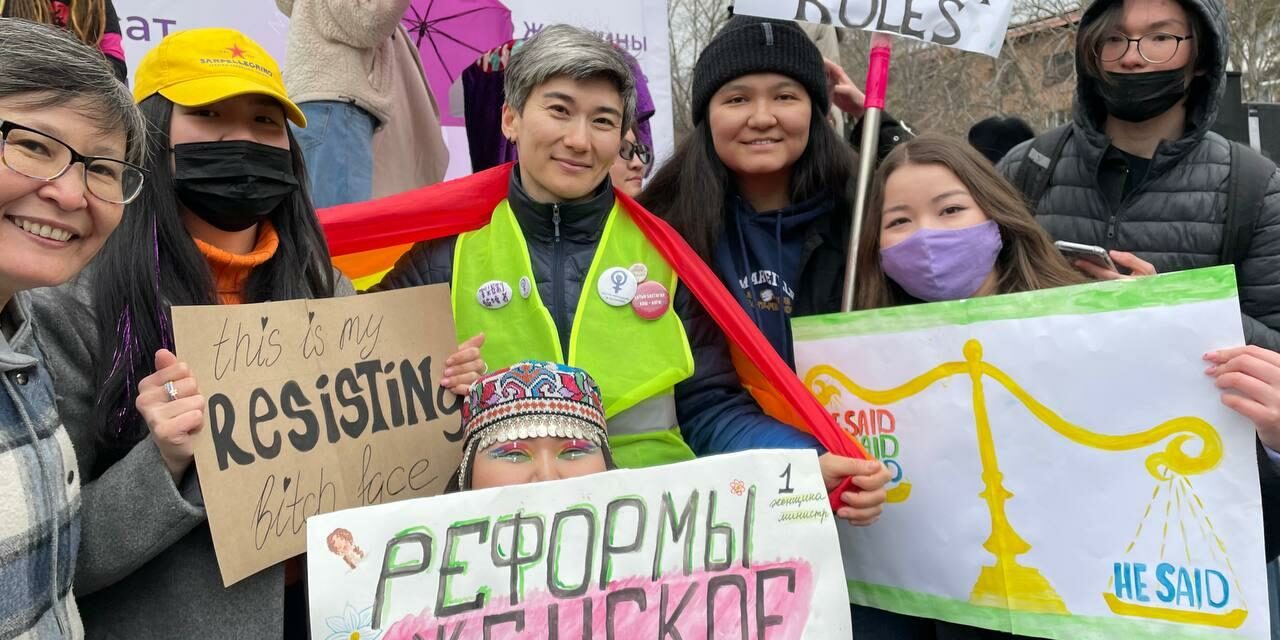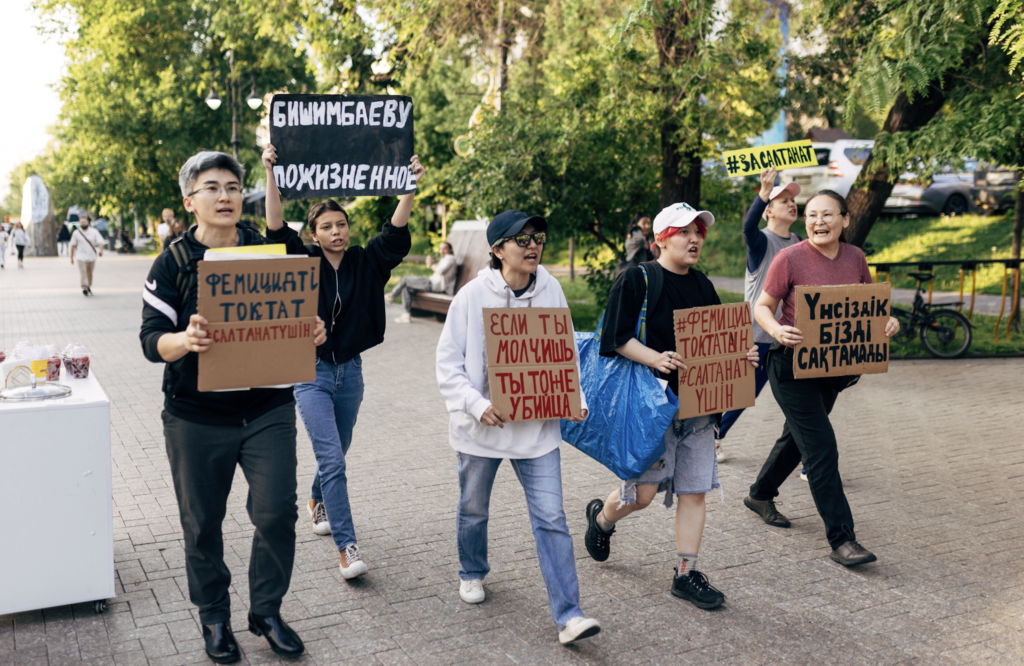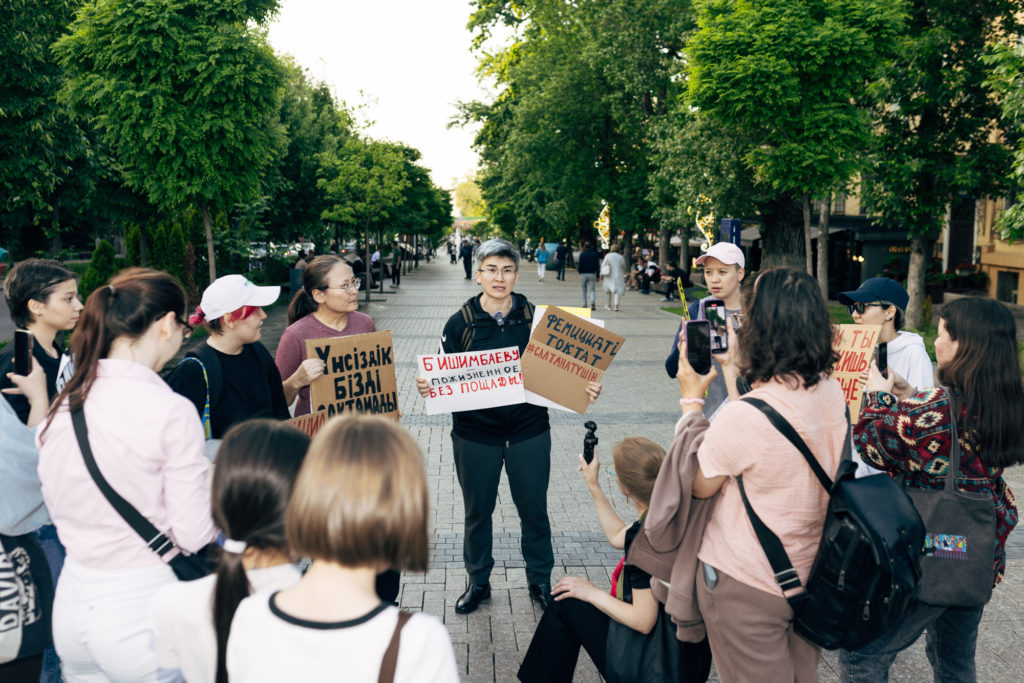Zhanar, you are the founder of a group in Kazakhstan called “Feminita.” Is this an expression of the feminist movement?
Actually, you might be surprised, but we didn’t start as such. The story is that in 2014 I participated in a big public protest against the devaluation of our national currency and I happened to be so visible that the authorities thought that I was the organizer, and I was arrested by the police. This made me “famous” overnight!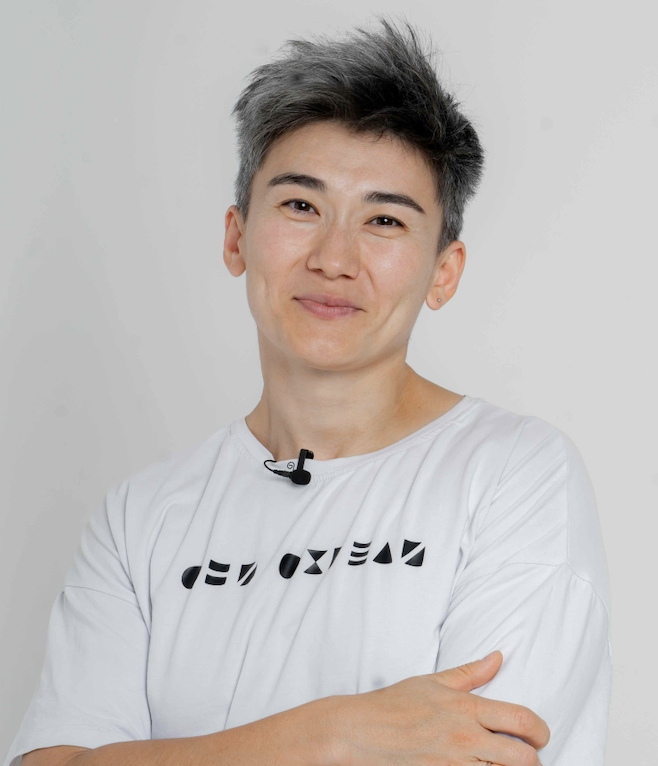
As my visibility developed, my masculine appearance was much commented on, which made me realise how political my gender expression is. From there on, with a few friends, we decided to organise around our identities and created Feminita, which focused on protecting the rights of LBTQ women.
So you are a firm believer that the personal is political?
We have indeed been active in politics since the beginning. For example, one of our greatest victories is the abolition of the list of professions prohibited for women. We also fight for the application of the law that foresees 50% of Women in the Government, when we are at 17% currently.
Since 2017, we have been organizing feminist marches and meetings on the 8th March. And the theme of the 2022 march should have been ‘Participation of women in politics’. But the march was canceled because of the ‘Bloody January’ events.
After the cancellation of our march, we launched a project called the Purple Yurt. It is based on the Soviet practice of the Red Yurt, when communists tried to enroll women from across the country into their Party by installing a red yurt in rural areas and offering various entertaining and educational activities to women. While women gathered to sew or have a tea party, communist representatives told them about the advantages of joining the Party.
Inspired by this practice, we reached out to LBTQ women via our social media and organized our own “Purple Yurt” workshops to raise awareness of their rights.
We don’t talk much about theory; we tell participants what we do, and we engage in conversations.
Your involvement in politics was also very direct, right?
In 2023, local elections were held that were widely open for candidates, and Feminita decided that we had the capacity to run for elections and that I should be the candidate.
We designed the campaign around local issues like pollution, efficiency of public transport, rising costs of public services and of rents, and quality of medical care.
We decided from the beginning that I would be out as a lesbian. We thought there would be backlash, but in reality, there was very little of it, maybe because I had been out for such a long time already. Some of our posters were vandalised but without a homophobic slur, which is, quite ironically, a sign of progress.
At the end, I arrived third. We believe it is a considerable achievement, considering that the candidate who won had powerful connections in our local government.
What have been the consequences of this campaign?
Feminita became really well-known after those elections. We started receiving messages from LGBTQ people from faraway towns and villages of Kazakhstan, who wanted to attend our events.
We also got more opportunities to organise public lectures, trainings, workshops about advocacy, LGBTQI rights, destigmatization of menstruation, feminism, etc, where we talk about women’s rights, LGBTQ rights, so-called traditional values, human rights in general, equality, etc.
Many young people express how important these conversations are, which don’t happen anywhere else.
Also, after the electoral campaign, all our volunteers stayed in a Telegram group, which is now a community of about 70 people. We discuss various topics, share important information, and support each other.
In hindsight, how do you see the connection between activism and politics?
These two aspects are often seen as distinct: you should do either politics or activism, but I strongly believe that if politicians also had a background as activists, they would be less cut off from the reality of people’s lives, and would be able to actually take helpful measures.
On the other hand, activists rarely enter politics, wasting an essential opportunity to bring about structural change.
What other lessons did you take from this campaign experience?
First, we could have created stronger alliances, especially with another female candidate. This could have made us win the election.
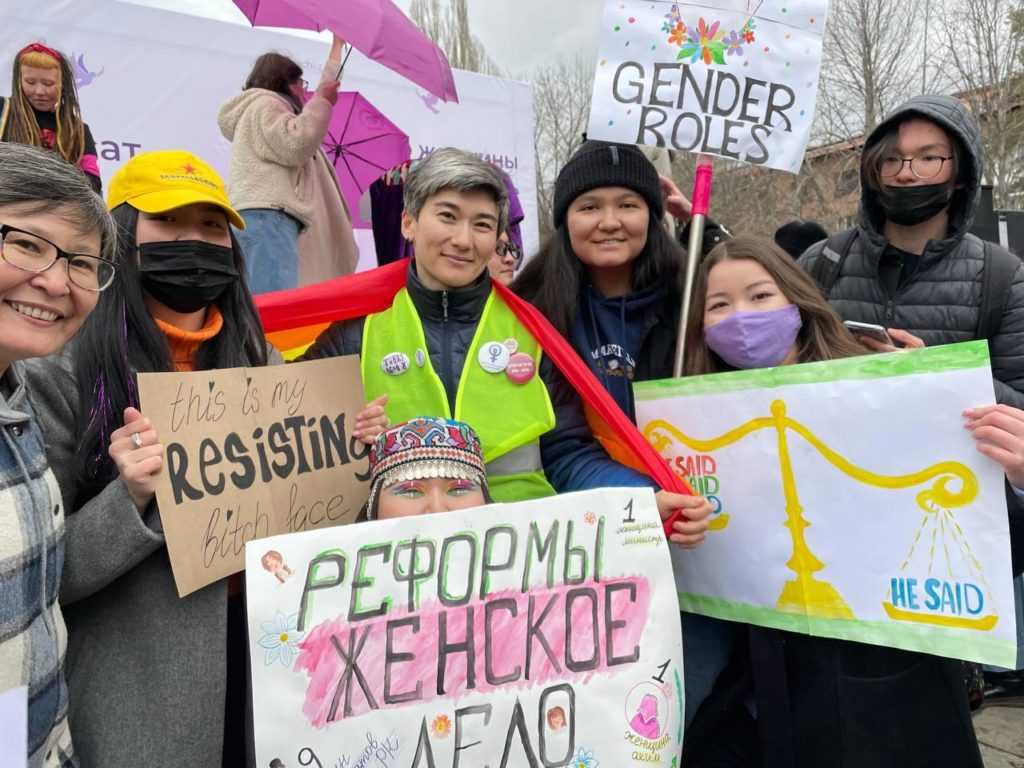 We also made the mistake to start preparing for our campaign only when my candidacy was approved, which was only one month before the election date. Only then did we start to design posters, write social media posts, etc. We should have started much earlier so that when my candidacy was announced, people would already know who I am.
We also made the mistake to start preparing for our campaign only when my candidacy was approved, which was only one month before the election date. Only then did we start to design posters, write social media posts, etc. We should have started much earlier so that when my candidacy was announced, people would already know who I am.
Anyway, it was our first experience, and we believe it was rather a success!
What would you recommend to queer activists who would like to enter politics?
I want to address all the female and queer candidates: believe in yourselves, don’t hesitate! How will anyone notice us if we don’t step out?
Also, be consistent and patient. The changes we seek take a long time to happen, and they involve trial and error. Some things look like they fail, like our election, but they contribute to the wider change; there is always a result.
Last, don’t end up tired, exhausted, or overwhelmed. Please don’t forget to rest and enjoy what is around you: reading, cats, sports, friends, walks, looking at trees, and life.

